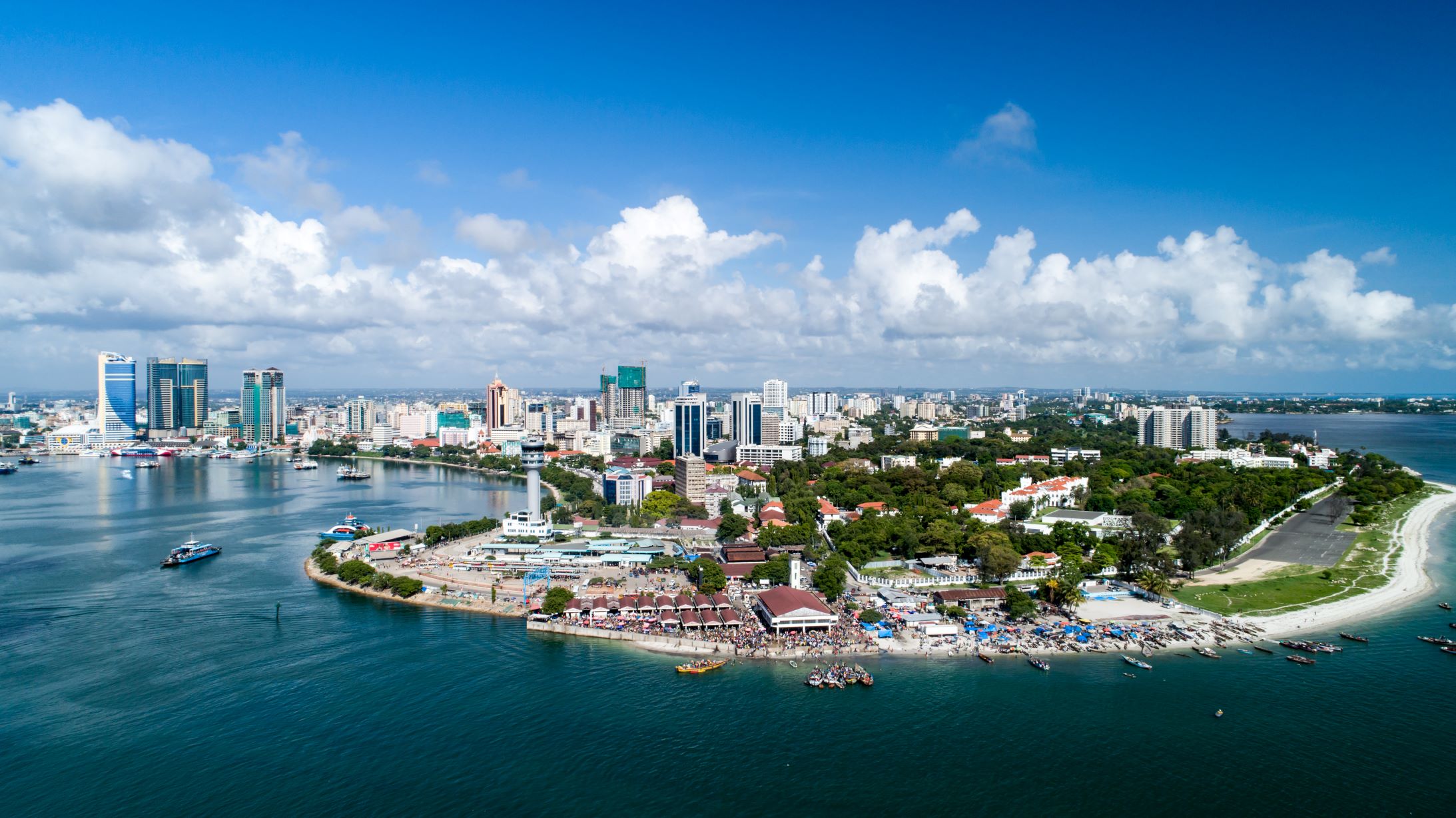Africa
Africa’s Food and Agribusiness Sector to Hit USD 1 Trillion by 2030
The African Development Bank (AfDB) has stated that Africa’s food and agribusiness sector is estimated to hit USD 1 trillion by 2030. The AfDB said this would present a significant opportunity for businesses to invest in the sector and for smallholder farmers to meet the growing demand for food on the continent. The AfDB President, Dr Akinwumi Adesina, stated this at the World Food Prize Foundation’s Norman E Borlaug dialogue in Des Moines, Iowa, United States of America.
Akinwumi said several world leaders are actively bolstering Africa’s food production and security. According to him, the move is apt considering the global population is expected to reach nine billion, which he said would create a pressing need for Africa to increase its agricultural productivity to meet the rising demands for food on the continent.
Source: This Day
Africa
USD 4.4 Billion Pledged Towards Africa-EU Green Energy Initiative
Olaf Scholz, the German Chancellor, pledged USD 4.4 billion for the Africa-EU Green Energy Initiative. This is according to a recent report by Bloomberg. According to the report, Scholz made the pledge at the recently concluded G20 Compact with Africa Investment Summit in Berlin, Germany. According to him, the funding will cover the initiative through 2030. He stated that Germany will import much of its green hydrogen from Africa. He also said that African countries should speed up the Africa Continental Free Trade Area (AfCFTA) implementation processes to ease business within the continent.
The Africa-Europe Green Energy Initiative, as outlined by the European Commission, stands as a pivotal strategy designed to facilitate engagement between European and African stakeholders, both from the public and private sectors. This initiative serves multifaceted objectives, primarily aimed at augmenting electricity generation and enhancing energy accessibility across the African continent.
Source: Nairametrics
Africa
Africa Investment Forum Secures USD 34.82 Billion in Investor Interest
The Africa Investment Forum’s 2023 Market Days generated USD 34.82 billion in investment interest for infrastructure, agriculture, health, and creative industry projects. The three-day global event, with the theme Unlocking African Value Chains, was held in Marrakech, Morocco. The event drew over 1,000 delegates from more than 60 countries. “We are building a formidable powerhouse around investments in Africa that will deliver transformative impacts on the lives of people. That is the bottom line of the Africa Investment Forum: investing to improve lives,” said African Development Bank (AfDB) Group president and chairperson of the Africa Investment Forum, Akinwumi Adesina. Deals covered several sectors, including the Mtwara-Mbamba Bay standard Gauge railway line in Tanzania and the Mangapwani II Integrated Port in Zanzibar. There were also deals in agri-business, renewable energy, creative industries and healthcare.
Source: AfDB
East Africa
East African Green Economy Businesses to Receive USD 2.9 Billion
The International Finance Corporation (IFC) has given Kenya, Tanzania and the Democratic Republic of Congo (DRC) businesses USD 2.9 billion in long-term and short-term financing. Mary Porter Peschka, IFC Regional Director for Eastern Africa, said it gave USD 65 million to fintech platform M-Kopa Holdings in Kenya to expand its financial services to under-banked consumers.
The fund aims to increase access to finance for small businesses, boost energy access and drive gender inclusion. “IFC increased its investments in Eastern Africa by 61 percent in the last financial year, and this financing is supporting our partners to increase lending to small businesses, expand access to green and sustainable electricity, and drive greater gender inclusion,” Peschka said.
Source: The East African
Egypt
SCZONE, China Agree on 11 Projects worth USD 15.6 Billion
The Suez Canal Economic Zone (SCZONE) is collaborating with China on eleven projects valued at USD 15.6 billion following the promotional tour led by SCZONE Chairman Walid Gamal El-Din. During the tour, the chairman engaged in twelve meetings with various companies and conducted on-site visits to factories and businesses in four cities: Hangzhou, Suzhou, Hefei, and Beijing.
In a meeting with Prime Minister Mostafa Madbouly, El-Din discussed the outcomes of the promotional tour to China. El-Din mentioned that new agreements and contracts were executed to attract investments across different sectors, with a particular focus on green fuel and manufacturing. These projects will span a total area of 4.9 million square meters and are expected to generate approximately 9,000 job opportunities.
Source: Egypt Today
Morocco
Morocco-Nigeria Pipeline will Facilitate African Integration
Amina Benkhadra, the General Director of Morocco’s Office of Hydrocarbons and Mining (ONHYM), has renewed the North African country’s strong interest in the gas pipeline project with Nigeria, emphasising its potential as a mechanism to facilitate continental integration in Africa. Benkhadra made her remarks on the sidelines of the ongoing African Investment Forum in Marrakech, stressing that the project will “enable us to move towards the African integration that needs to be developed.”
Emphasising the importance of the project, Benkhadra said that the pipeline would contribute to accessing energy not only for the population that needs it but also for the crucial development of industrial and mining sectors. The countries that will benefit from the pipeline have mineral resources that require energy, Benkhadra said, noting that the project is receiving special attention from King Mohammed VI. “Morocco serves as a model in several sectors thanks to the royal vision,” she said, citing industries like phosphates and agriculture.
Source: Morocco World News
Nigeria
Federal Government Identifies USD 23 Billion Investment Opportunities in Energy Transition
The Federal Government has identified about USD 23 billion in investment opportunities in Nigeria for projects directly related to the country’s Energy Transition Plan (ETP), the Minister of Power, Adebayo Adelabu, stated recently. In his remarks at the second German-Nigerian Symposium on Green Hydrogen, Adelabu said the opportunities would not only provide electric power for economic development but would result in significant net job creation with up to 340,000 jobs by 2030.
He said the ETP would create 840,000 jobs by 2060, driven mainly by the power, cooking and transport sectors. He added that gas would play a critical role as a transition fuel in Nigeria’s net-zero pathway, particularly in the power and cooking sectors. “The ETP creates significant investment opportunities such as the establishment and expansion of industries related to solar energy, green hydrogen, and electric vehicles.
Source: The Punch
Uganda
Investment Survey Ranks Uganda among Top Sub-Saharan Prospects
Uganda is among the top ten countries in sub-Saharan Africa where companies are looking to invest or expand over the next few years, according to a KPMG report released recently. The country was selected by 10 percent of senior executives from companies that have invested in sub-Saharan Africa (SSA) over the past four years and anticipate further acquisitions or expansion of current operations in the next two years. South Africa ranked first as the leading prospective investment destination, selected by half of the respondents, trailed by Nigeria at 30 percent and Tanzania at 15 percent. Ghana, Kenya, and Mauritius each received 14 percent.
The survey polled 150 senior executives, split evenly between domestic and international investors. Of those surveyed, 74 percent expressed interest in making another acquisition or investment in sub-Saharan Africa within the next two years, while 77 percent considered additional capital injections into current acquisitions. In addition, 68 percent predicted an increase in deal activity over the next two years, including 31 percent who were optimistic that it would increase significantly. The survey was conducted in the second half of 2022.
Source: Uganda Business News
__________________
Reports
Financing the Development of African Cities | AfDB
Urbanisation is the mega trend reshaping Africa. The continent’s population is rapidly growing and is expected to reach 4 billion people by the end of the century. This is coupled with unprecedented rural-to-urban migration, driven largely by young people. As a result of this demographic confluence, the number of people living in African cities is expected to nearly triple – reaching approximately 1.5 billion by 2050.
This report first offers a landscape analysis of city financing in Africa. It illuminates the demand-side and supply-side constraints that prevent financing from reaching most African local authorities, drawing on in-depth analyses of 10 cities. The paper moves beyond existing analyses that conclude, ‘African cities need more finance’ or ‘African cities need bankable projects’. Although constraints vary in type and severity across cities, the case studies reveal common themes and highlight options for improving the supply and demand of subnational finance if city and national governments collaborate and financiers are alerted to opportunities.
Click here to read and download the full report.
Unlocking the FinTech Potential in Africa | BCG and Elevandi
The African FinTech ecosystem is blossoming. The high unbanked and underbanked population, accelerating mobile/internet penetration, and an increasing need for financial inclusion across the region present a great opportunity for Financial Technology (FinTech) companies. However, investing in Africa has not been as straightforward as in other parts of the world. Furthermore, there is only a limited number of “unicorns,” and funding is still more centred around earlier rounds than in other regions.
This report explores the concerns preventing capital providers from further investing in Africa and what they can do to extract the most value from their investment. It also examines what policymakers can work on to create an environment in which FinTechs can thrive and thus attract further investment. Support from and constant dialogue between stakeholders is required to sustainably advance the FinTech industry and unlock its full potential in future years.
Click here to read and download the full report.
State of Artificial Intelligence in Africa 2023 Report | Centre for Intellectual Property and Information Technology Law
Africa is embracing Artificial Intelligence in ways unique to the continent and is by no means showing signs of slowing down. The report highlights the potential of AI technologies to transform various sectors in Africa, such as business operations, healthcare, education, legal and judicial services, and transportation. However, the report also identifies significant gaps in access to knowledge/information, data, education, training, and human resources necessary for AI development and adoption.
The report also focuses on four key thematic areas: AI and Data, AI and Innovation, AI Use and Impact in Health, Agriculture, Legal and Creative Fields, and Responsible AI. It highlights the challenges faced in AI adoption in Africa, including ill-equipped policy frameworks, ethics, skills and capacity, and a need for a structured data ecosystem. The absence of robust policy frameworks leaves AI deployment largely unregulated, and ethical concerns such as accountability, data bias, transparency, and socio-economic implications arise. Africa should approach AI strategically, focusing on its unique challenges and solutions rather than simply replicating techniques from the Global North. Collaboration and investment from the public and private sectors are crucial to establish the necessary infrastructure and promote capacity building in digital skills.
Click here to read and download the full report.
Taking Responsibility: Towards a Fit-for-Purpose Loss and Damage Fund | UNCTAD
Climate-related extreme and slow-onset events are increasing in intensity and frequency every year. Countries that are the least responsible for climate change suffer the most devastating consequences. Developing countries need the financial means to respond to climate-related loss and damage and meet adaptation and mitigation objectives. The support available at the international level, whether through the humanitarian system or international financial institutions, is also far short of need.
Recognised as the breakthrough outcome at COP27, the operationalisation of new funding arrangements for responding to loss and damage established a Transitional Committee (TC) to recommend a new fund for consideration and adoption at COP28. This report reflects on several aspects of the TC’s mandate that have emerged during its activities in 2023 and offers a series of recommendations that aim to enrich discussion on outcomes for COP28. It is structured around four chapters that are linked by a focus on tackling the systemic challenges that keep developing countries in crisis and out of climate-resilient development pathways.


